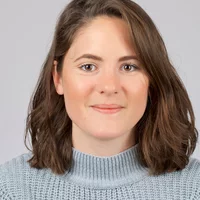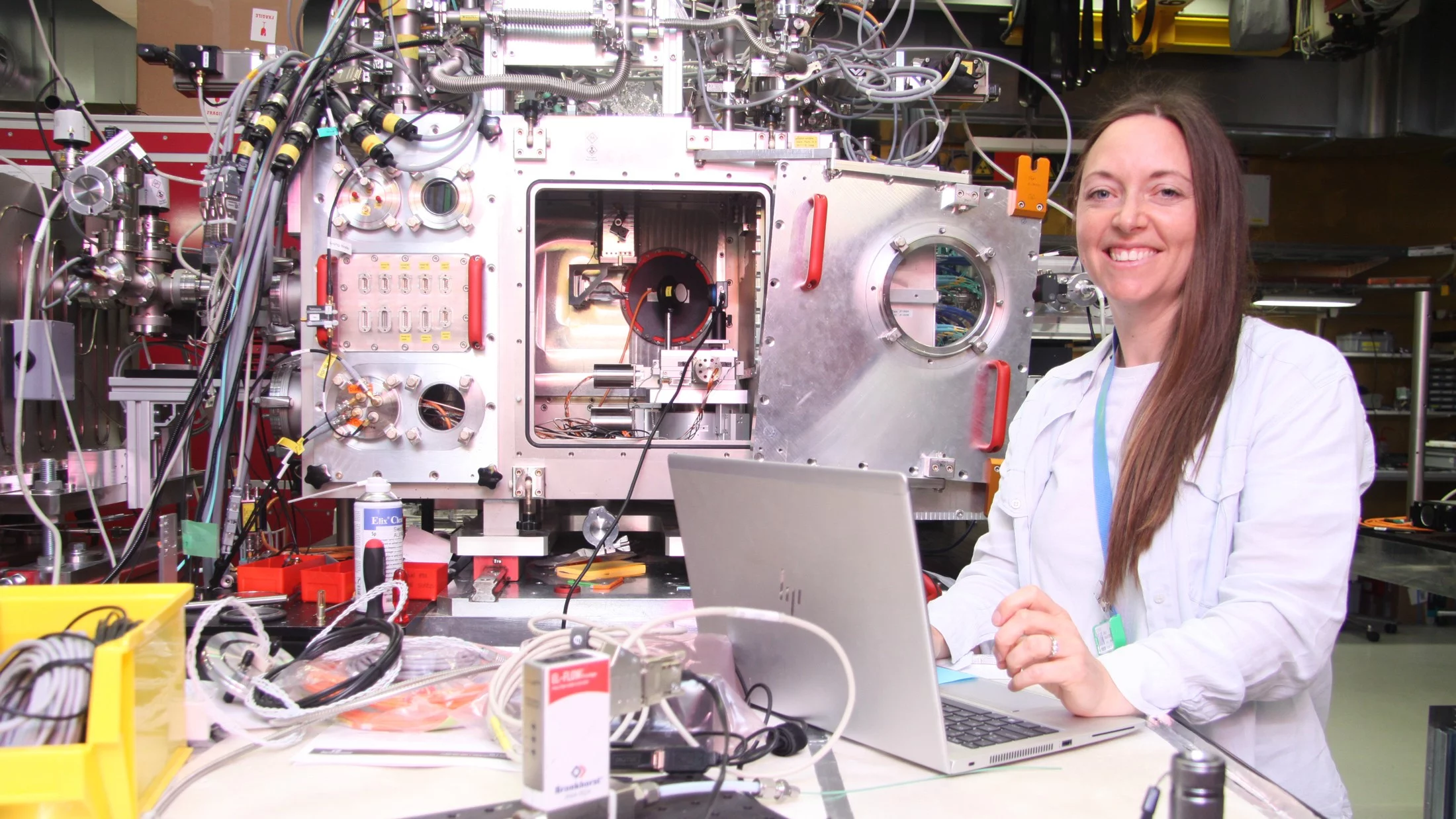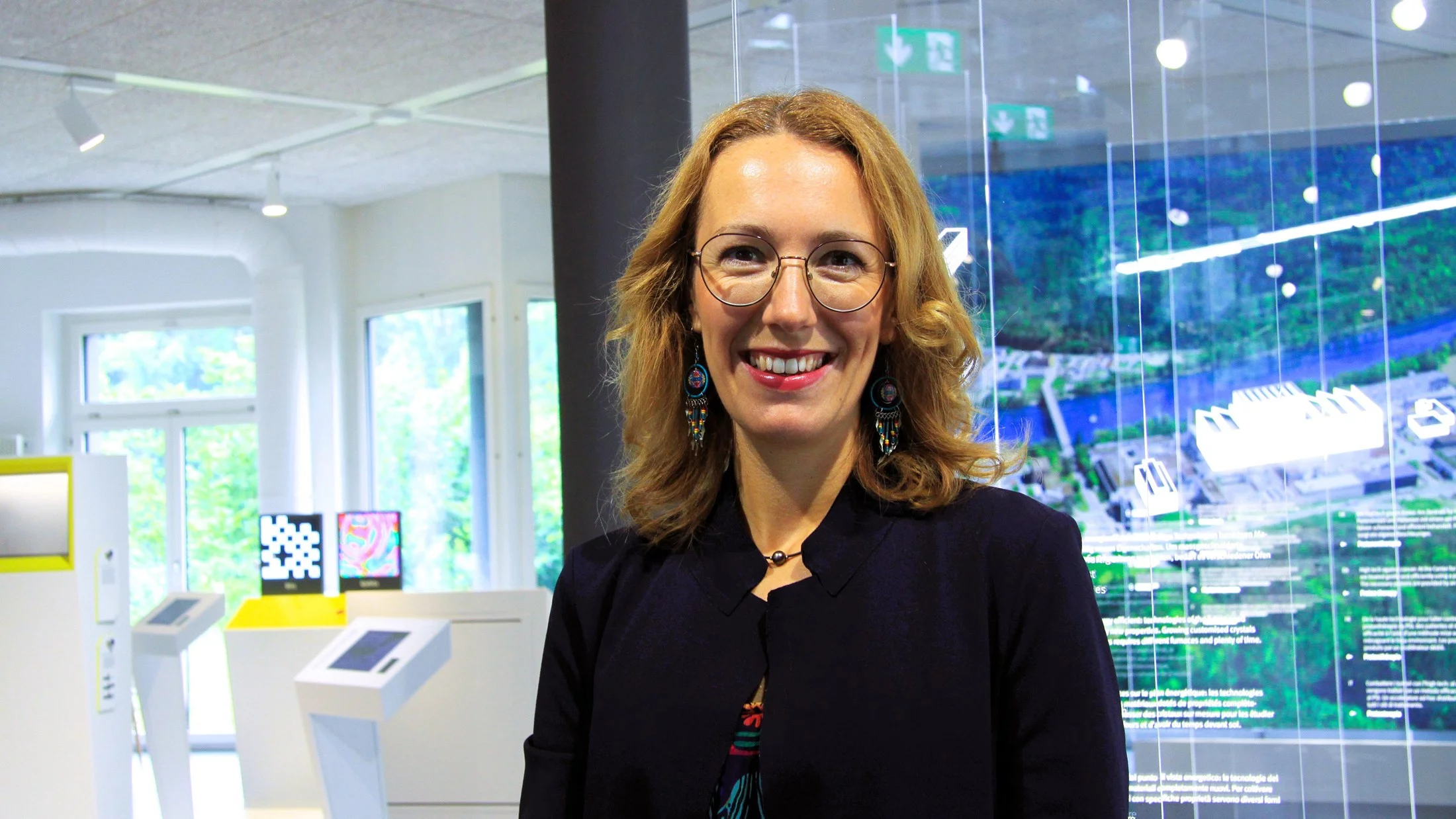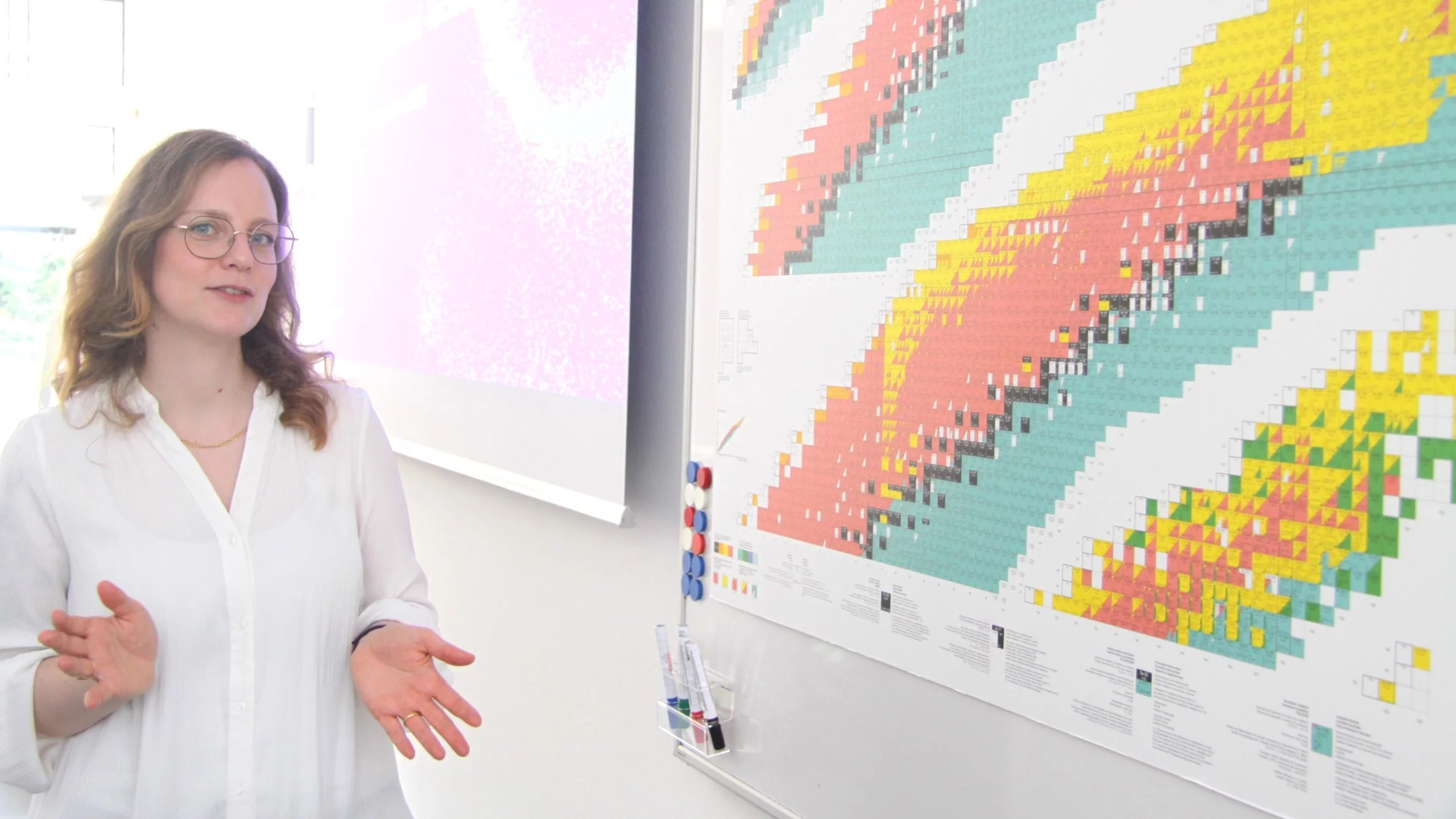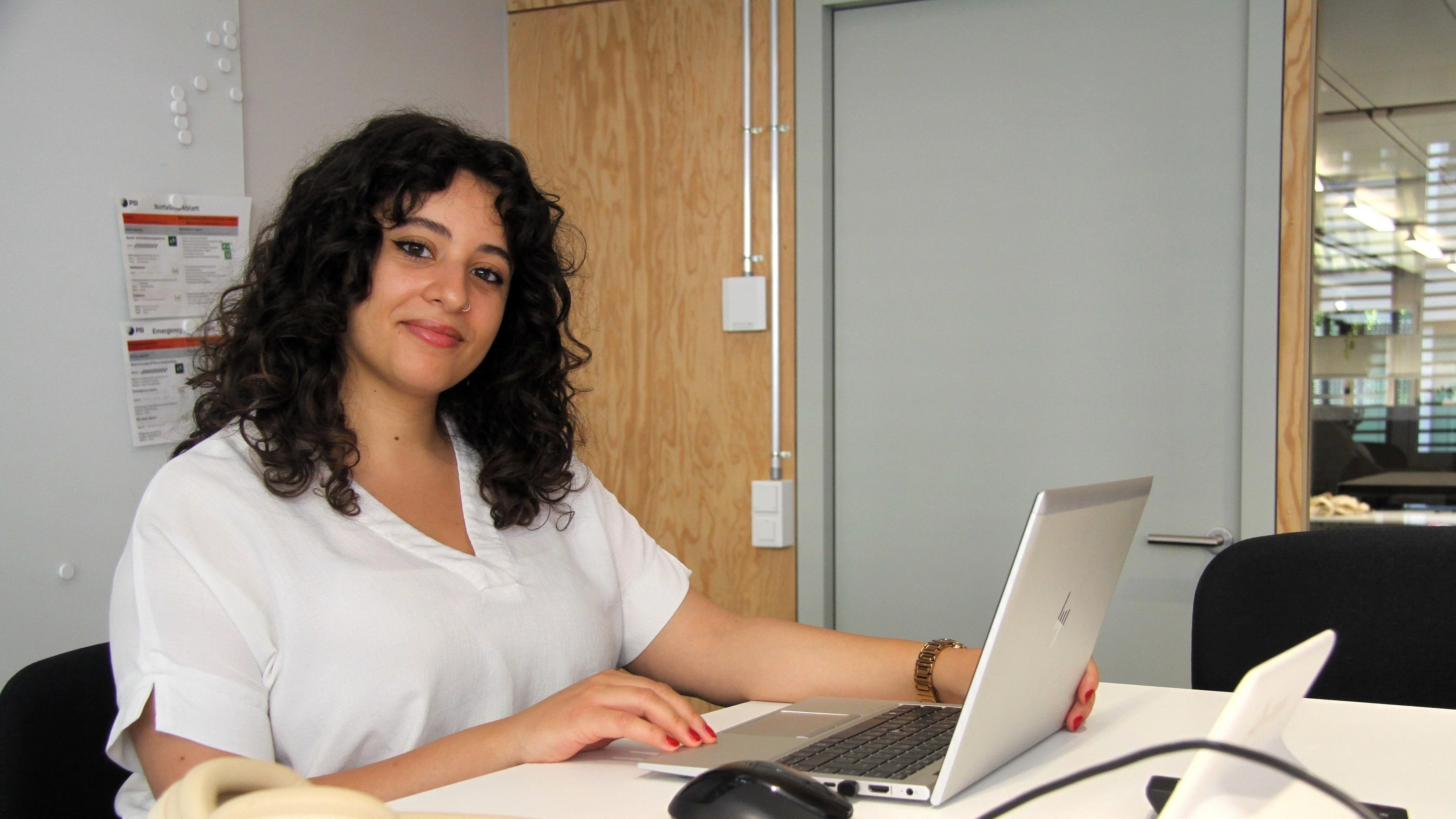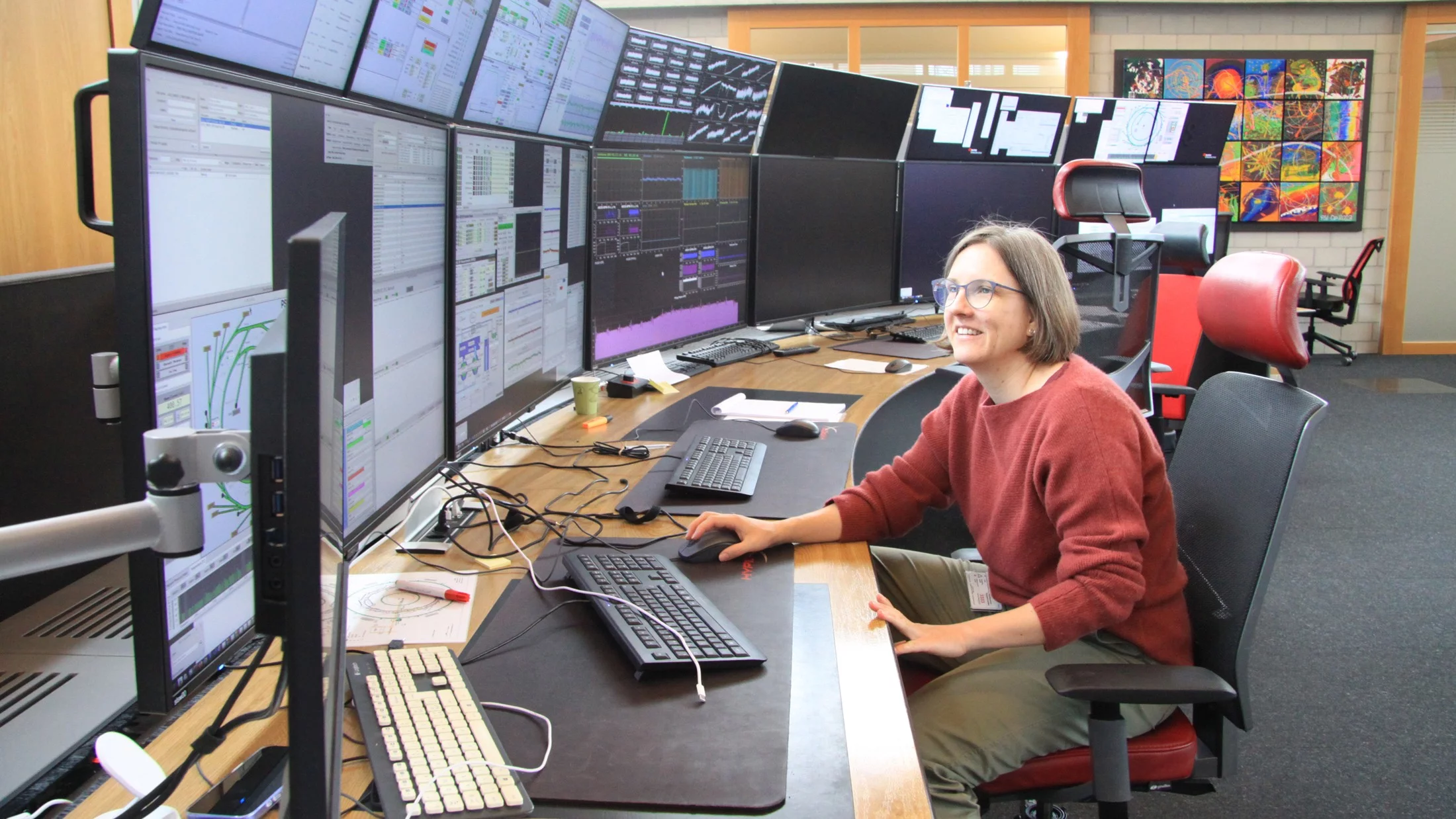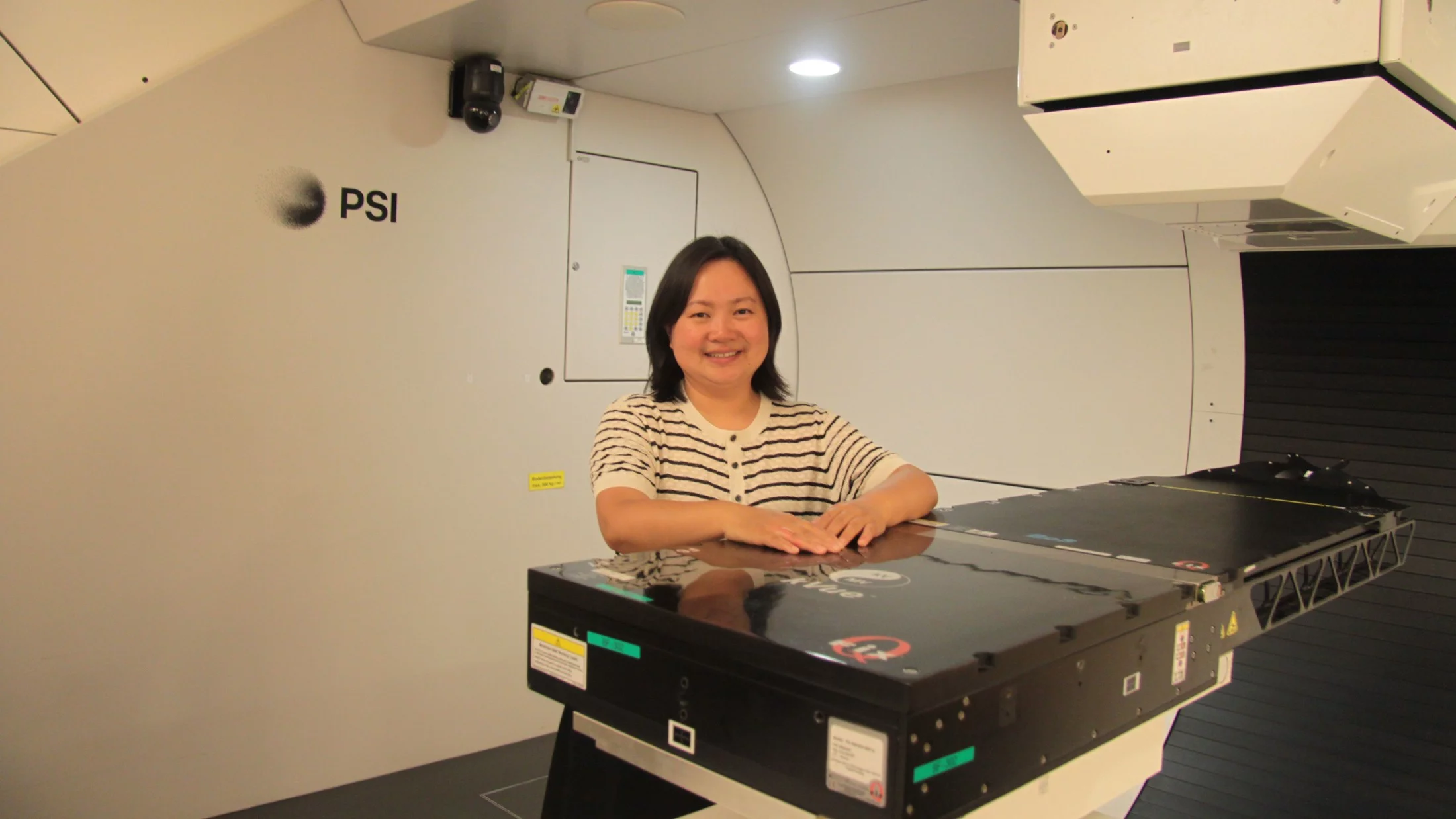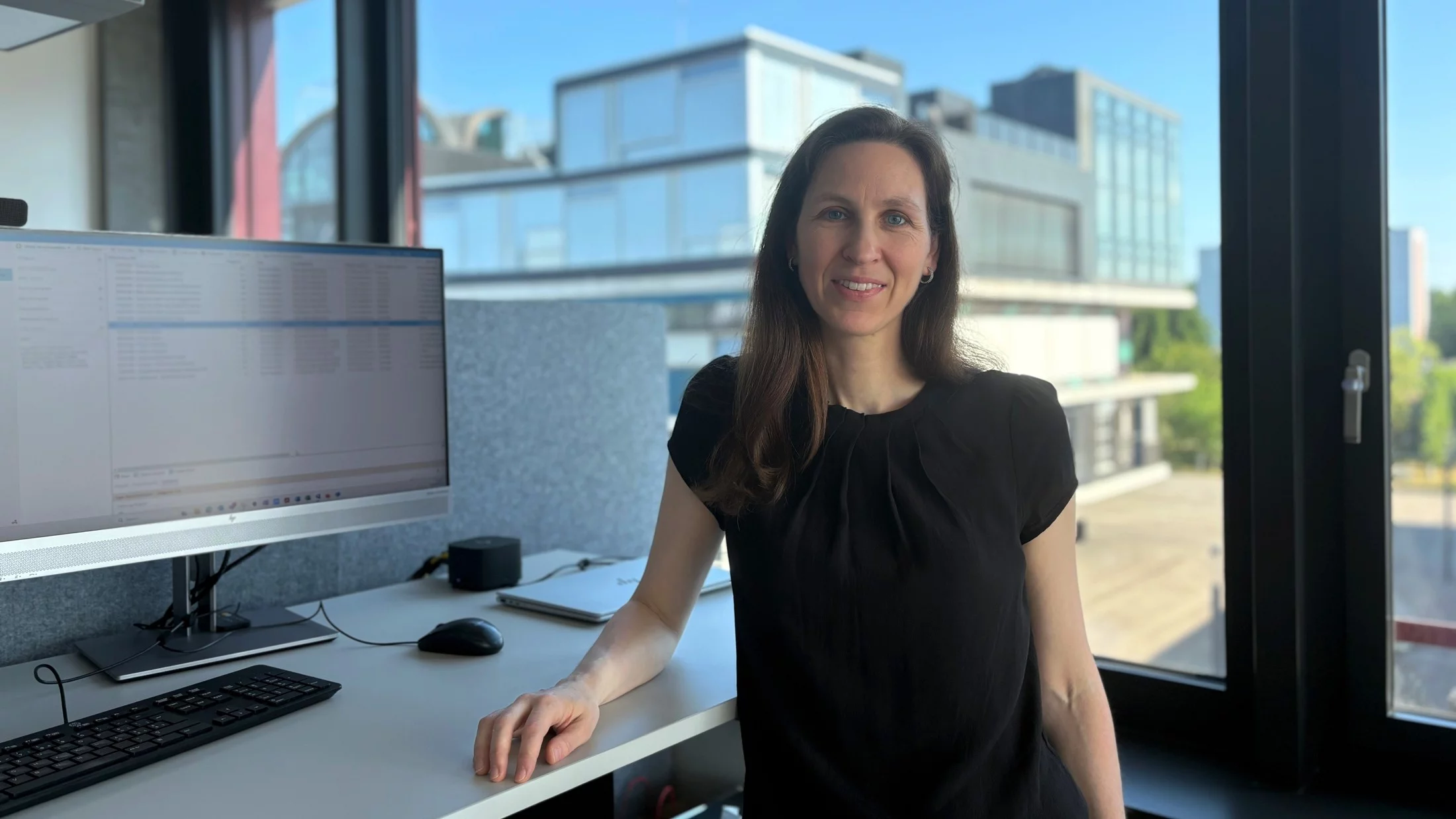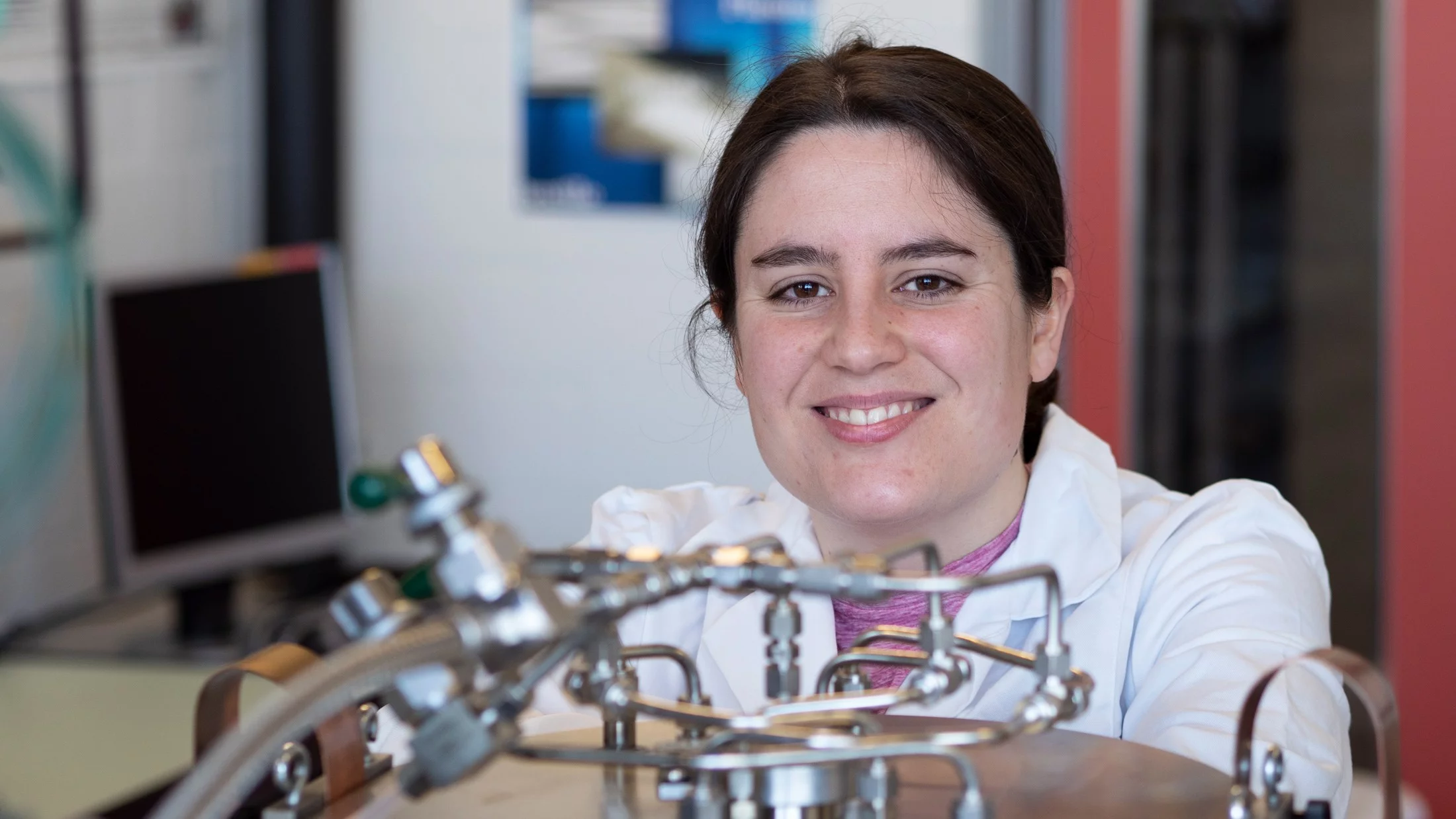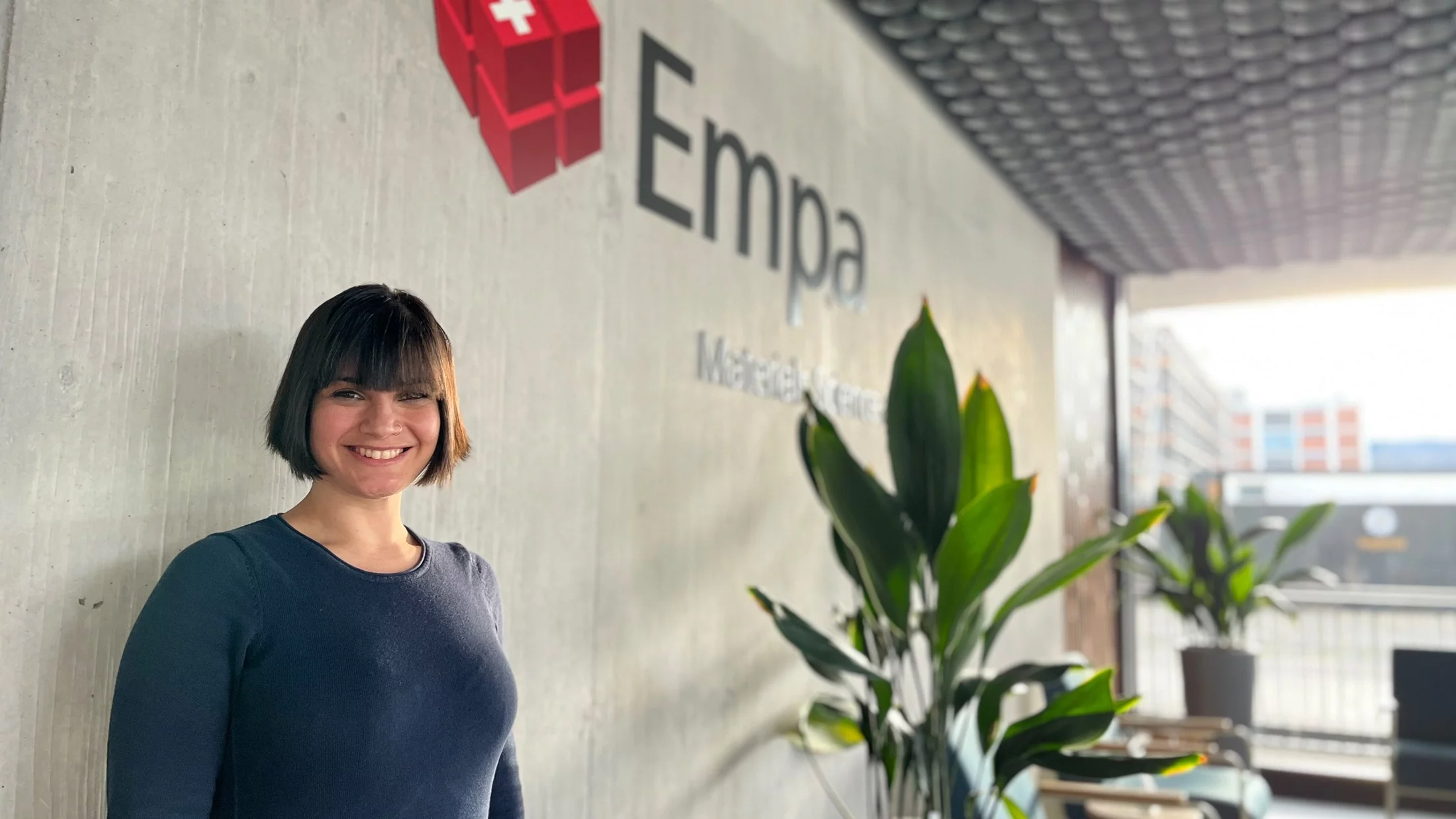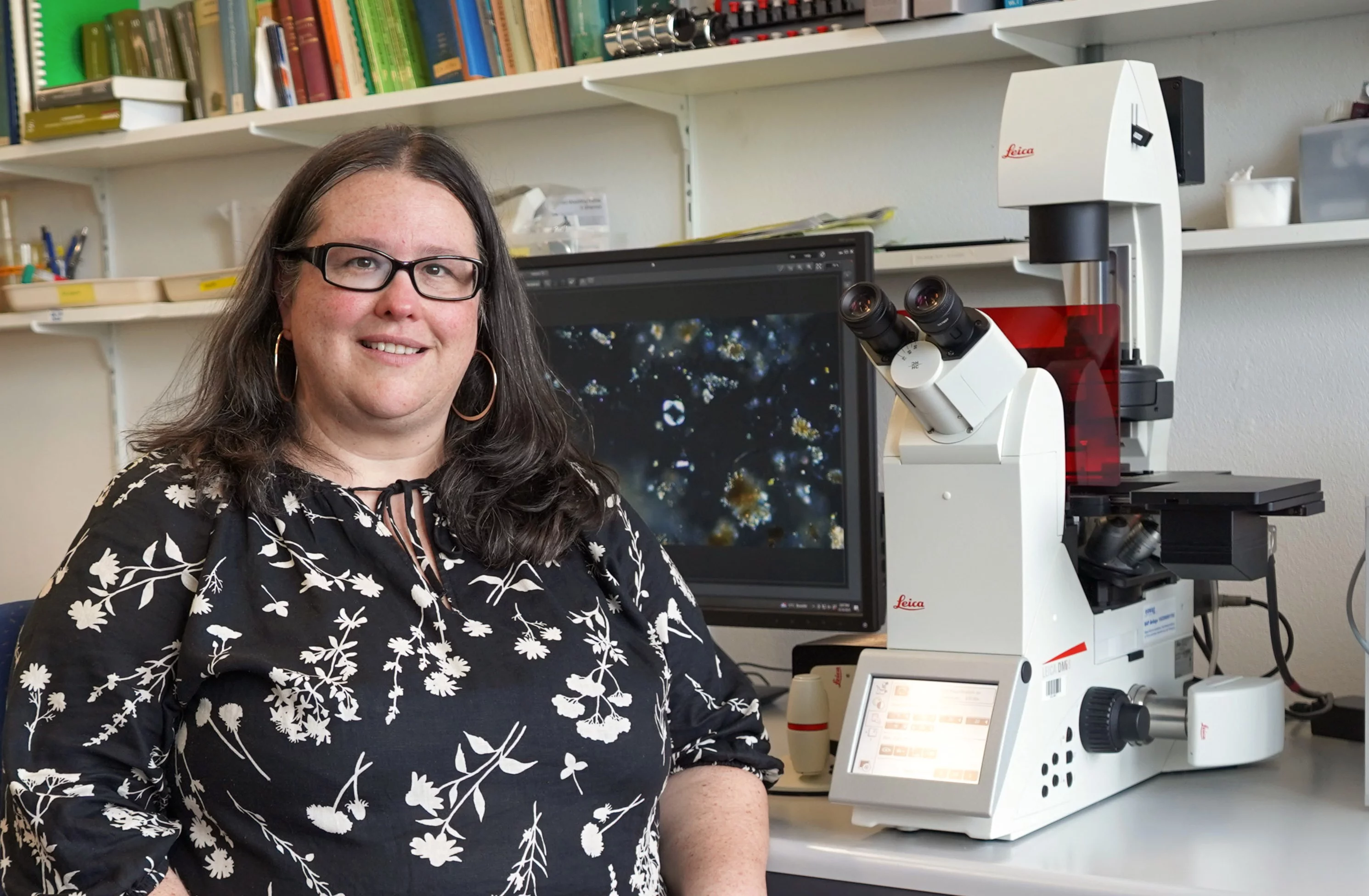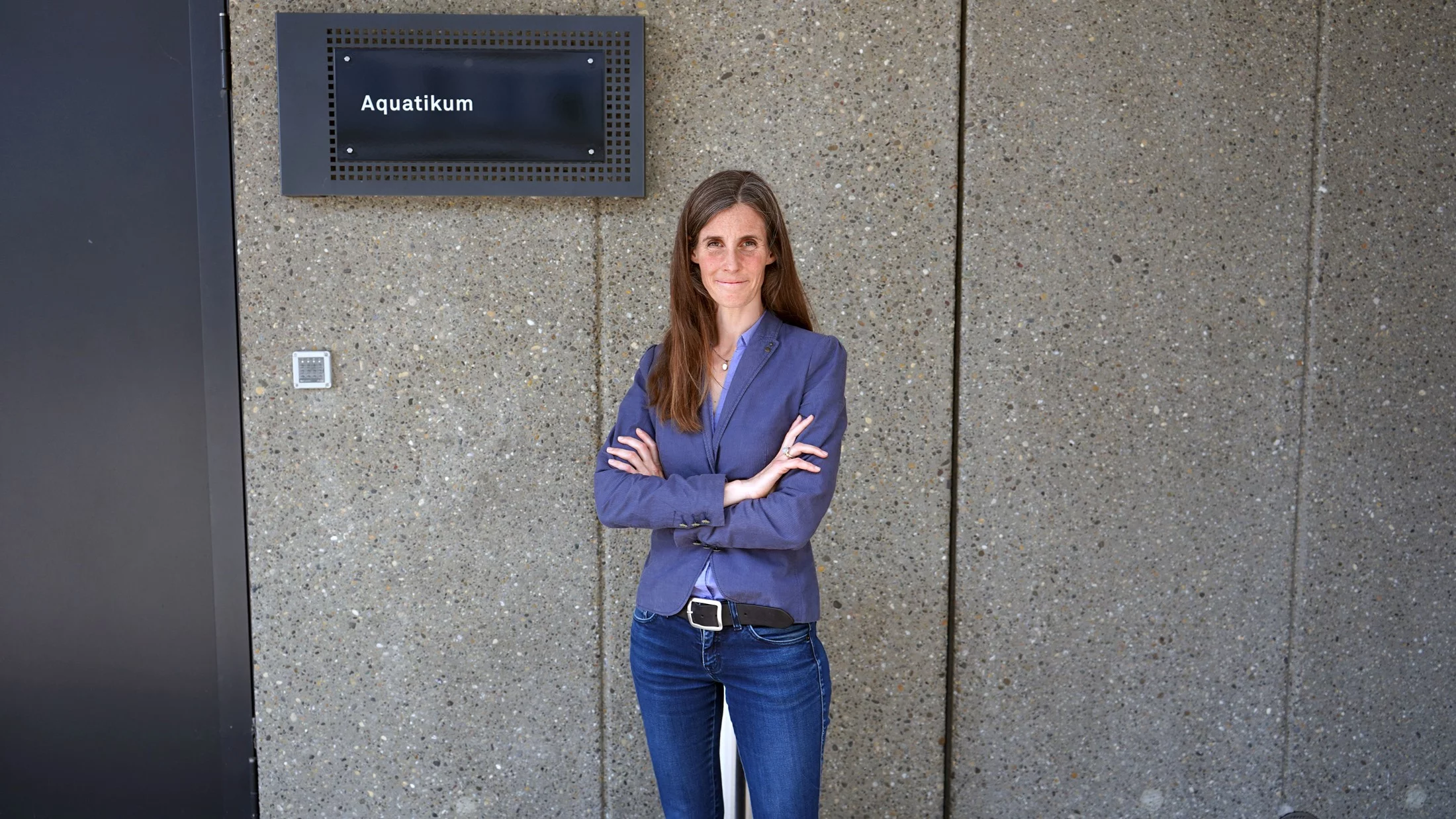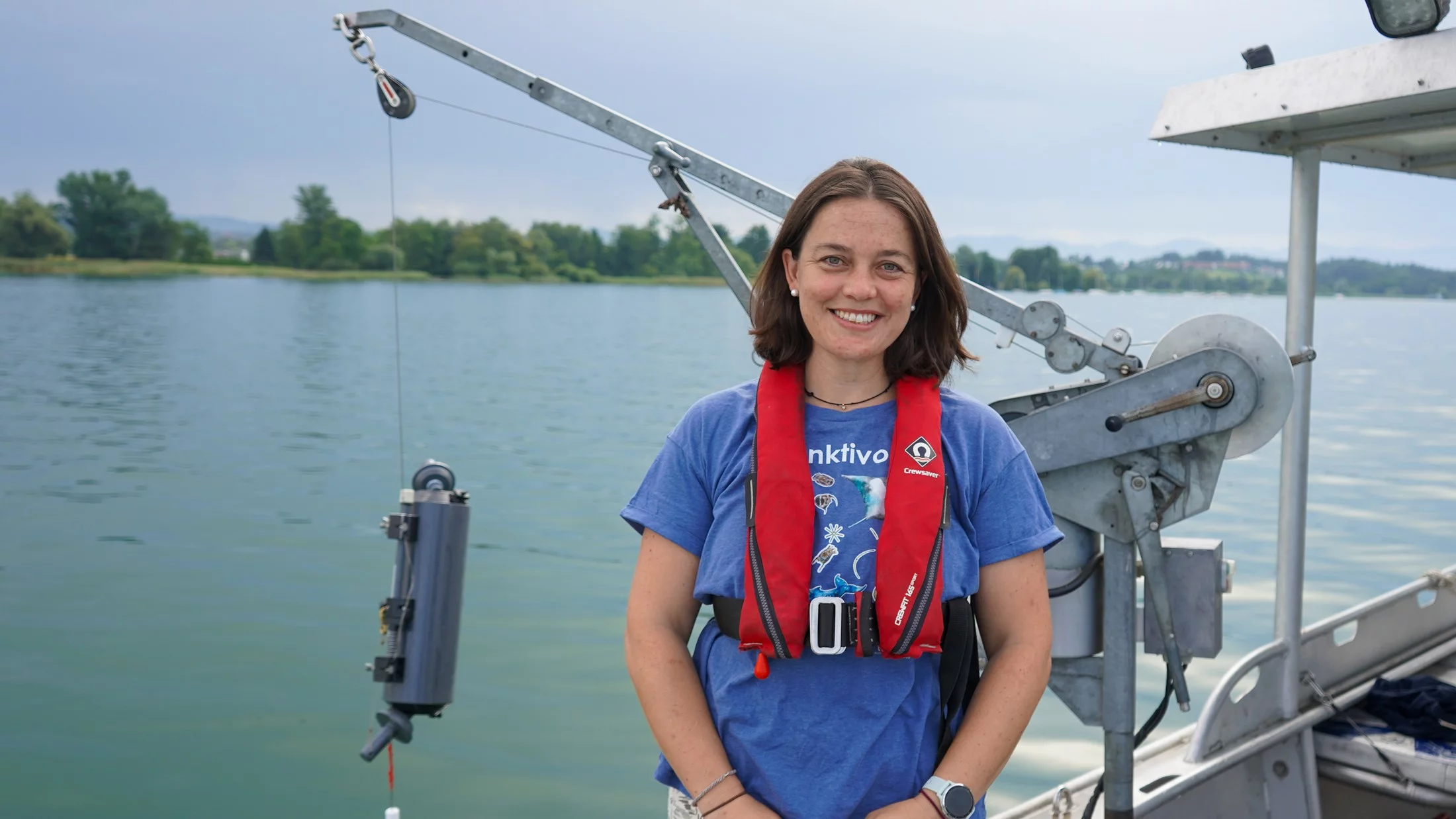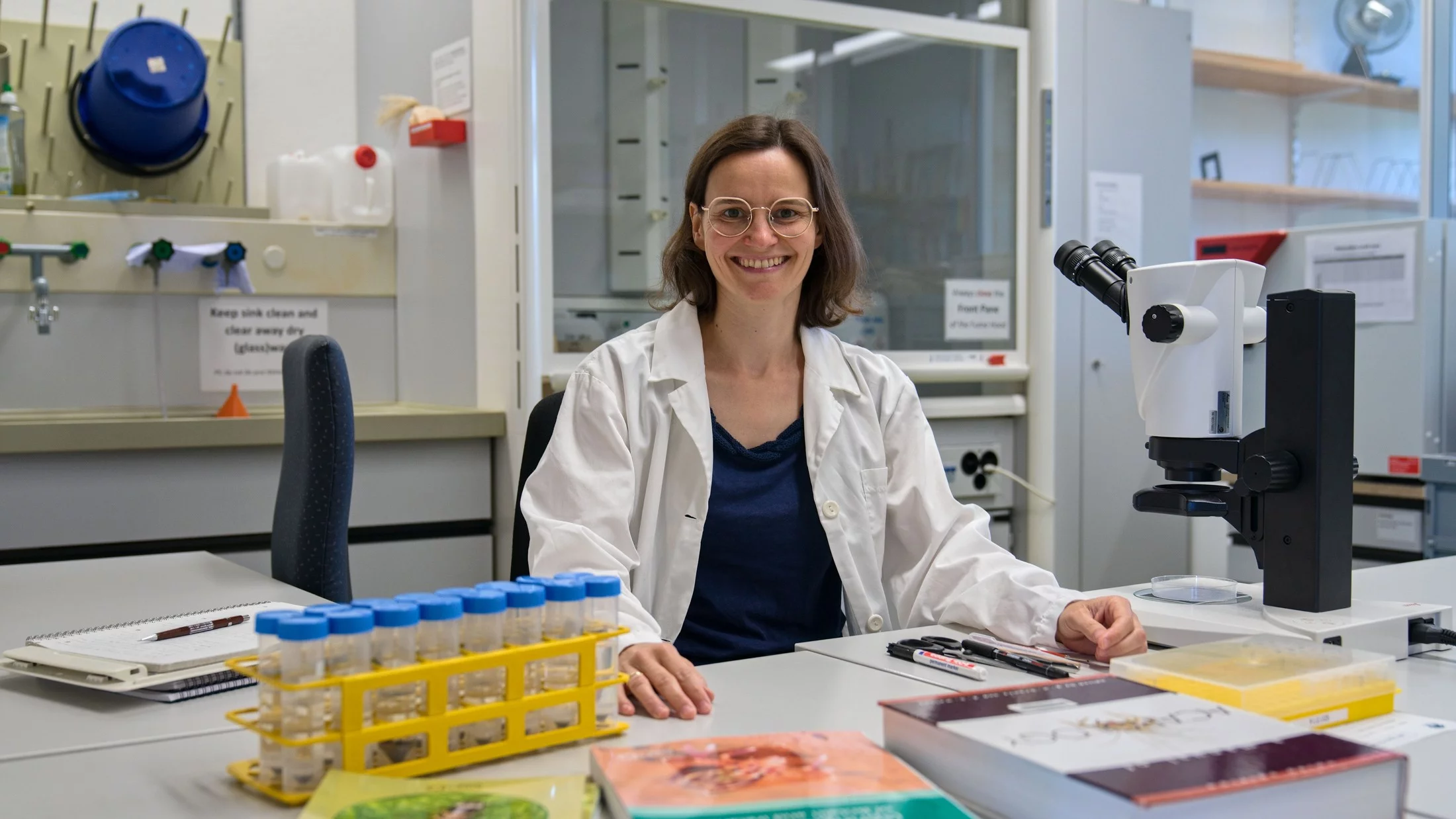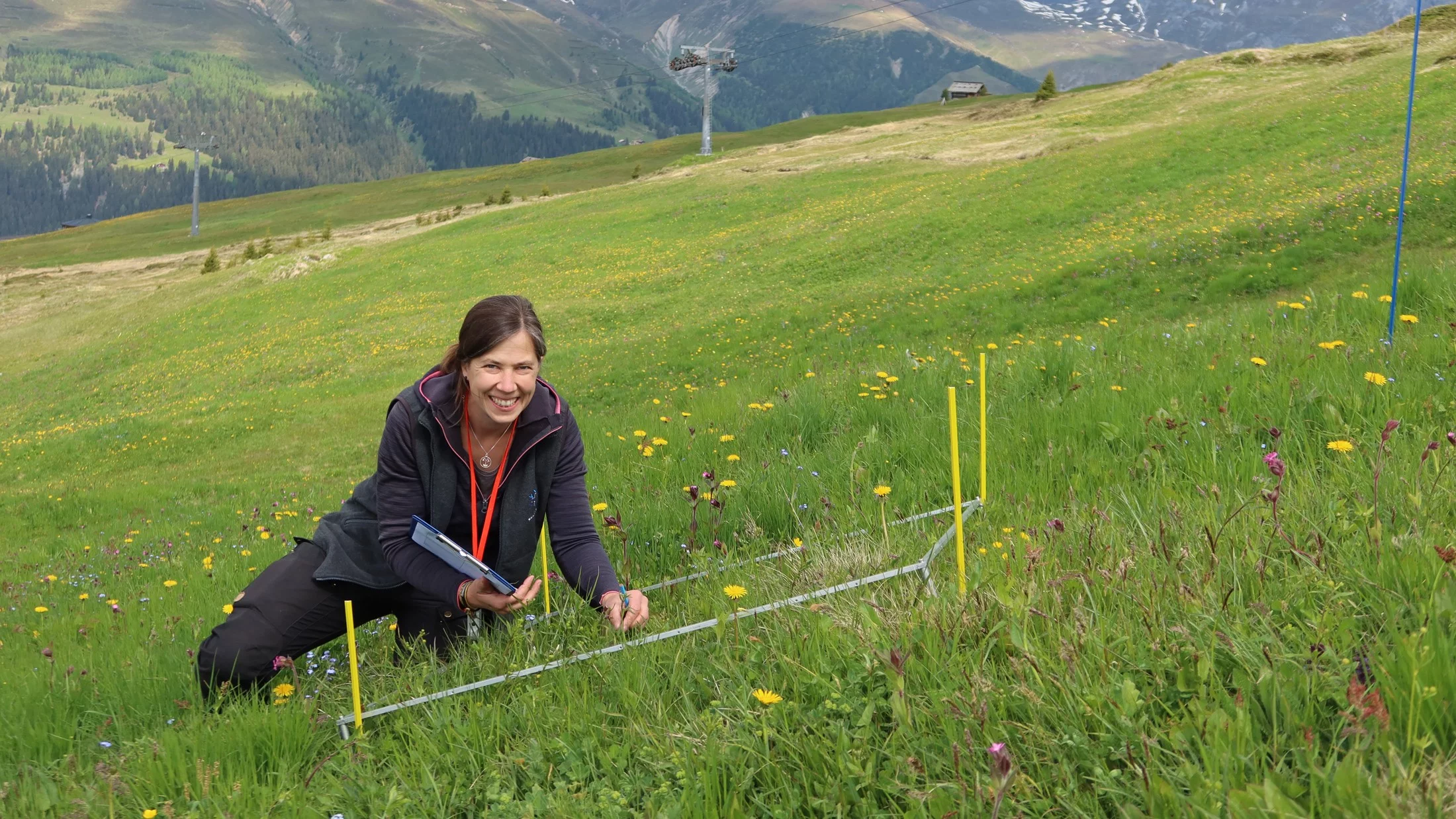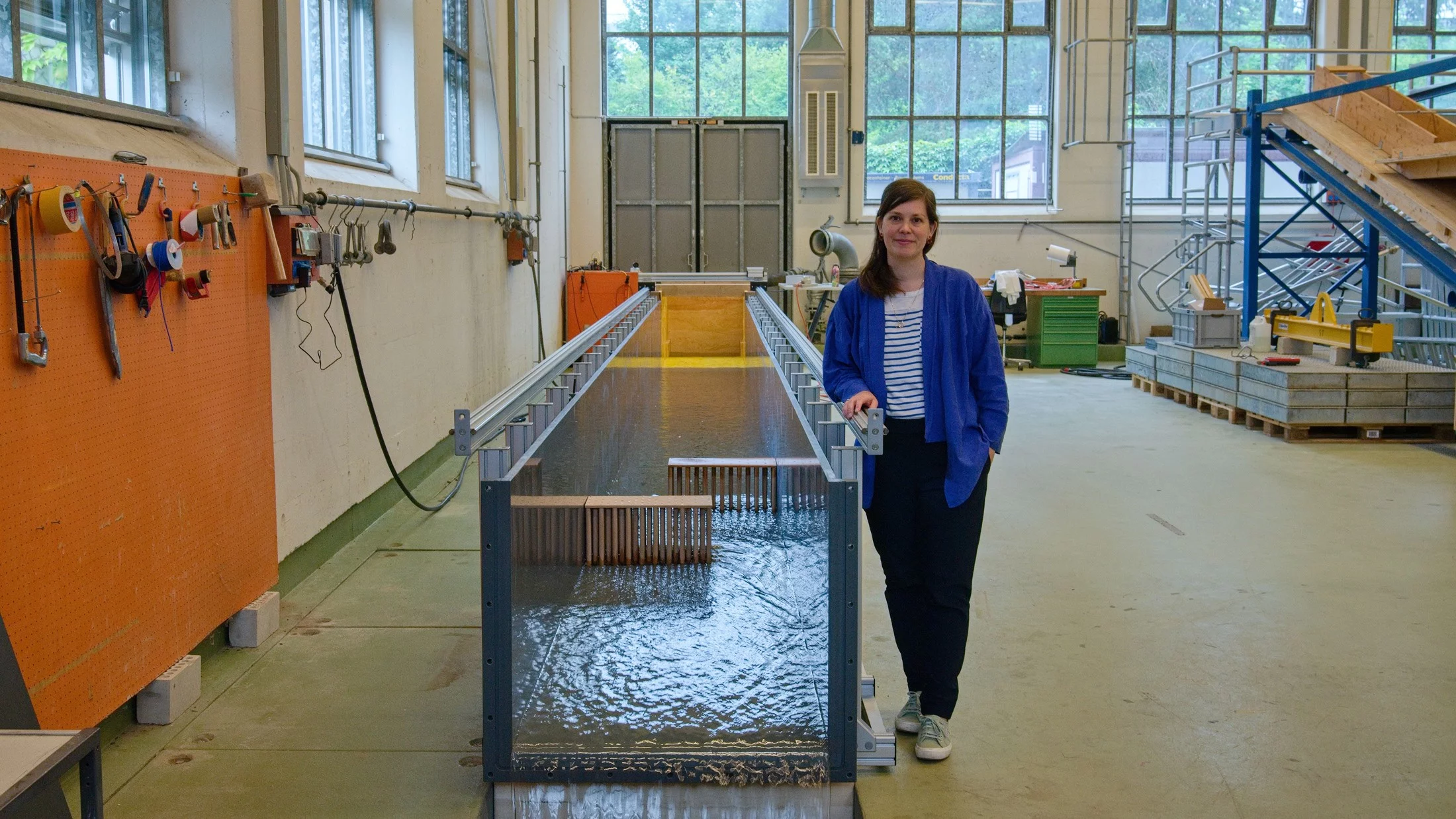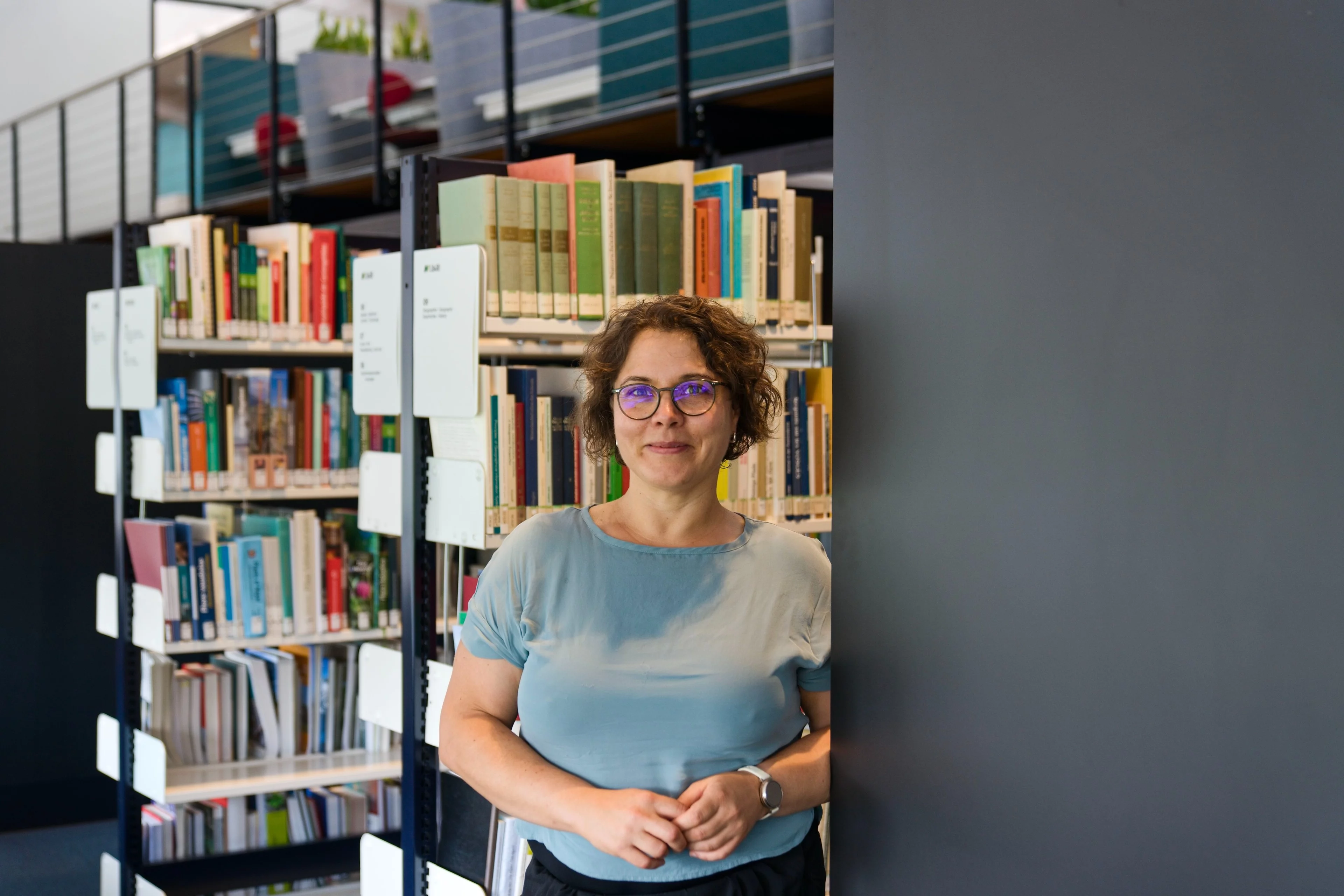The feM-LEAD programme (female Mentoring – Leadership for Equity and Diversity) by the four research institutes of the ETH Domain is aimed at women who wish to take on a leadership role in the future or who want to explore this option.
20 mentees took part in the 5th round and spent a year working intensely on their personal and career trajectories – supported by 1:1 mentoring, workshops, and peer-coaching. In brief portraits, some of the participants introduce themselves and give insight into their ambitions, perspectives, and experiences with feM-LEAD. More information about the programme and the next application window (15.09-26.10) can be found here.
PSI-Mentees: Emma Beale, Carolin Fichtner, Julia Köhler, Florencia Malamud, Heba Mostafa, Tatjana Weber, Ye Zhang
Empa-Mentees: Carlota Bozal-Ginesta, Sandra Bürgi, Paula Navascués, Barbara Putz, Dea Wehrli, Mashael Yazdanie
Eawag-Mentees: Silvana Kaeser, Alexandra Kroll, Marta Reyes
WSL-Mentees: Irene Cordero, Anne Kempel, Isabella Schalko, Marion Sommer
PSI-Mentees
Emma Beale, Biochemisty Specialist, PSI
“As a student, I was fascinated by how biological systems work and how everything in nature is regulated and intertwined. This, combined with my passion for art, drew me to structural biology: A field where we study how biological molecules look and function at an atomic level. At SwissFEL, I work as a specialist developing and testing infrastructure that enables cutting-edge experiments.”
What have you achieved or particularly valued in your career so far and why did you decide to apply for feM-LEAD?
Having done a PhD and further post-doctoral research in this area, I now work at the Swiss X-ray free electron laser facility, SwissFEL carrying out experiments that provide us with ‘molecular movies’ of biological molecules in action. Alongside my own research, I teach and support visiting groups when they come to SwissFEL to perform their experiments. I thoroughly enjoy the challenging and creative nature of my job and find it satisfying to work in large teams with complementary skillsets to solve complex problems.
My goal for the feM-LEAD programme was to understand more about effective leadership. I wanted to identify the skills I need to develop further in order to progess into a leadership position in the future but also to gain guidance on the leadership responsibilities I currently have.
What ambition, vision, motivation or new insight do you leave the feM-LEAD programme with?
feM-LEAD provided an ideal space and structure to think about what is next for me. I found the conversations with my mentor extremely constructive and gained a great deal from them. I also thoroughly enjoyed the sessions with the other programme participants; it was inspiring to meet such a diverse group of people from across the ETH research institutes. I now have more clarity about how I can progress in my career; moreover, I’ve been able to define some clear next steps to take.
Carolin Fichtner, Project Coordinator, Axpo (formerly PSI)
“Following my PhD in Earth sciences, which had a strong component in experimental physics, I wanted to apply my broad knowledge to solve challenging problems with high societal relevance. It has always been essential for me to combine my natural science background with my talent and passion for organisation and communication. This is precisely what I have achieved professionally: Until recently, I coordinated the decommissioning of nuclear research reactors at PSI, working at the interface between various stakeholders. Now I have similar responsibilities at the nuclear power plant in Beznau.”
What have you achieved or particularly valued in your career so far and why did you decide to apply for feM-LEAD?
During my first job at NAGRA, I was responsible for the management of the Swiss database of radioactive materials, which plays a key role in the planning of the future deep geological storage site. At PSI, I built on my expertise and communication skills to implement an efficient decommissioning process of nuclear reactors, which is crucial to the future use of these sites. I particularly enjoyed communicating and coordinating with a wide range of stakeholders, including scientific institutions, federal agencies, companies, and more. I have organised scientific symposia and represented my team at international conferences.
My motivation for feM-LEAD was to take responsibility for people, advance their careers, and proactively drive projects forward. Therefore, I wanted to learn more about different leadership styles, receive guidance from an experienced mentor, and prepare actively for my next steps towards a leadership role.
What ambition, vision, motivation or new insight do you leave the feM-LEAD programme with?
The most profound takeaway for me was to realise the nature of leadership: that it should be understood as a form of support for the team – not as a privilege. I learned that a good leader not only has to deliver results but, even more importantly, develop their team members to ensure good team performance.
Julia Köhler, Course Instructor Radiation Protection, PSI
“I’ve always been curious about naturally occurring radioactivity, which is why I decided to focus on radioanalytical chemistry, radioecology, and radiation protection after I received my master’s degree in analytical chemistry. During my PhD, I gave lectures for students at the university – an exciting experience that motivated me to combine two of my passions: teaching and radiation protection.”
What have you achieved or particularly valued in your career so far and why did you decide to apply for feM-LEAD?
During my PhD in the field of radioecology and radiation protection, I particularly enjoyed leading my own project and supervising students. Since 2023, I have combined my academic background with my passion for teaching and organisation. I completed training as an adult educator and as a radiation protection expert for nuclear facilities in Switzerland.
As a young woman teacher in nuclear related topics, I realised that leadership skills and confidence are mandatory. To develop these skills purposefully, I applied for the feM-LEAD programme. I aim to leverage the knowledge gained to further develop my leadership skills and apply them in my future career.
What ambition, vision, motivation or new insight do you leave the feM-LEAD programme with?
During the feM-LEAD programme, I could gain insight into how to become a good leader. I discovered my own leadership skills and developed a vision for my personal leadership style. The regular workshops made me realise how similar the roles performed in teaching positions are to those in a leadership position. Sharing experiences in mentoring and with other mentees provided valuable new insights for shaping my career path. All in all, feM-LEAD encouraged me to pursue a leadership position in my future career and to use and develop my existing leadership skills.
Heba Mostafa, Software Engineer, PSI
“I'm inspired by the creative potential of technology and how it can transform even the most mundane challenges into innovative solutions. Since 2020, I've been working as a software engineer at PSI, where I develop robust solutions and enhance internal workflows. Alongside my work, I'm pursuing a bachelor's degree in IT with a specialisation in design and management.”
What have you achieved or particularly valued in your career so far and why did you decide to apply for feM-LEAD?
One of the most rewarding moments in my career was stepping in on short notice to support our apprentices during a critical time. I quickly taught myself new skills to guide them through their final projects and ensure their training continued without disruption.
The experience pushed me out of my comfort zone and brought a deep sense of joy, especially as I saw the whole team come together around a shared goal. It made me realise that I am adept at taking on responsibility and that pursuing a leadership role is something I genuinely want to explore. I applied to feM-LEAD to deepen my understanding of effective leadership, further my personal development, and take a more conscious role in shaping the direction of our work.
What ambition, vision, motivation or new insight do you leave the feM-LEAD programme with?
Through feM-LEAD, I gained clarity about my leadership potential and came to see good leadership not as dominance, but as structure, responsibility, and reflective, effective communication. The programme revealed many hidden dynamics of the professional world and helped me understand the kind of path I want to grow in. Thanks to its targeted approach and insights of experienced professionals, I developed quickly in many areas and now feel well-equipped to continue advancing in my career.
Tatjana Weber, Accelerator Operator, PSI
"Medicine has always fascinated me. To combine this with my technical interest, I studied medical technology. As an accelerator operator here at PSI, my main task is to operate the four particle accelerators - including the facility for irradiating cancer patients. I particularly enjoy working with the various specialist groups."
What have you achieved or particularly valued in your career so far and why did you decide to apply for feM-LEAD?
Researching the four different accelerators and better understanding the results achieved is my passion. Enabling researchers to do their work and ensuring the operation for the patients feels very meaningful to me. Presentations and exchanges at conferences further enrich my daily work. For instance, I recently presented my work on ‘Ensuring Reliability and Reproducibility at the Proton Therapy Facility PROSCAN at PSI’ at the Accelerator Reliability Workshop in Sweden.
Through feM-LEAD, I wanted to find out more about whether a leadership position is an option for me in the future, what I already bring to the table, and where I still have potential for development.
What ambition, vision, motivation or new insight do you leave the feM-LEAD programme with?
In the feM-LEAD programme, I was able to explore my leadership potential through direct exchange with my mentor and the other mentees as well as various further training courses.
I have gained a broader view of leadership positions and the key factors for successful leadership work. Particularly, the relevance of good communication in leadership has become even more apparent to me – how effective communication can resolve issues before they arise and how crucial it is for an inclusive work environment.
Ye Zhang, Scientist, PSI
“Motivated by my passion for precision cancer treatment and interdisciplinary innovation, I pursued a career in medical physics to connect physics and engineering with clinical applications in radiotherapy. I am currently a Tenured Scientist at the Centre for Proton Therapy at PSI, and a lecturer at ETH Zurich, with a research focus on real-time adaptive proton therapy and AI-driven MR-guided treatment. My work integrates advanced imaging, mathematical modelling, and intelligent planning to shape the next generation of personalised, high-precision cancer therapies that are both highly efficient and cost-effective.”
What have you achieved or particularly valued in your career so far and why did you decide to apply for feM-LEAD?
Throughout my career, I have led pioneering research in adaptive proton therapy and AI-guided radiotherapy, contributing to numerous impactful publications and various international collaborations. I’ve especially enjoyed mentoring young scientists and translating technical innovations into clinical workflows that directly benefit patients.
My leadership experience in research, teaching, and international expert groups has deepened my commitment to advancing the field of proton therapy. Therefore, I strive to take on greater institutional responsibility and advocate more effectively for innovation and inclusion in medical physics. With feM-LEAD, I aimed to further strengthen my strategic leadership skills, expand my professional network, and learn from other leaders who navigate similar challenges in science and academia.
What ambition, vision, motivation or new insight do you leave the feM-LEAD programme with?
feM-LEAD has strengthened my confidence to fully embrace my role as a leader in advancing innovation in proton therapy. I leave the programme with a clearer vision of how to lead interdisciplinary teams, translate research into clinical impact, and create a more inclusive environment that fosters bold ideas. This experience has deepened my motivation to shape the future of cancer care through visionary, patient-centered solutions and to mentor the next generation of innovators in our field.
Empa-Mentees
Sandra Bürgi, Executive Project Manager, Empa
“My curiosity for recognising patterns in complexity led me to the natural sciences – all the way to a PhD. I then applied and further developed this analytical mindset in the healthcare sector, working on interdisciplinary projects and quality improvement initiatives. Today, I use this skill set to decode complex interrelations, identify strategic needs, and shape targeted, high-impact solutions in our organisation.”
What have you achieved or particularly valued in your career so far and why did you decide to apply for feM-LEAD?
I bring structure to complexity – whether in organisational realignments, intricate coordination processes, or preparing decision-critical information for the directorate. To move beyond the status quo, I develop creative strategies that unlock fresh perspectives. A strong network that spans institutional boundaries, combined with open dialogue across all levels of the organisation, are key success factors for me.
I joined the feM-LEAD programme to deepen my understanding of leadership and to actively shape my personal development – particularly attracted by the mentoring and the inspiring exchange with like-minded women. The insights I gained have broadened my leadership perspective and helped me define my next steps with greater clarity and focus.
What ambition, vision, motivation or new insight do you leave the feM-LEAD programme with?
The programme has provided me with valuable new perspectives on leadership and strengthened my resolve to consciously take on responsibility. I realised how essential it is to act with presence and natural authority in order to create real impact and generate space for effective contribution. My vision is to see leadership as an opportunity to create meaningful impact and to live it with conviction.
Paula Navascués, Plasma Scientist, Empa
“As a teenager, I became fascinated by how math explains nature – which led me to physics – and by understanding matter – which led me to materials engineering. Later, luckily, I discovered plasma science and technology, the field I’ve been working in since my BSc, focusing on nanomaterials and sustainability.”
What have you achieved or particularly valued in your career so far and why did you decide to apply for feM-LEAD?
My motivation is to contribute to sustainability and combat climate change, a responsibility my generation must uphold to create an affordable, fair world. Plasma science and technology represents a rich platform for working towards sustainable goals from many directions, with no room for giving up and always pushing innovation. I’m grateful that my research bridges fundamental science and practical applications, enabling me to grow both as a physicist and an engineer.
I believe I can inspire others with my passion, which is why I applied to the feM-LEAD programme to explore my potential as a scientific leader. A new generation of leaders in science is needed, one that demonstrates that it is possible to think outside the box while also prioritising health and life beyond work.
What ambition, vision, motivation or new insight do you leave the feM-LEAD programme with?
This programme has taught me invaluable knowledge and prompted me to ask myself questions I never consciously did. I now know I want to become a leader who builds trust, serves as a role model, inspires others, and promotes a democratic environment. I want my team to work towards a common goal, with all members shining through their unique strengths.
Barbara Putz, Material Scientist, Empa
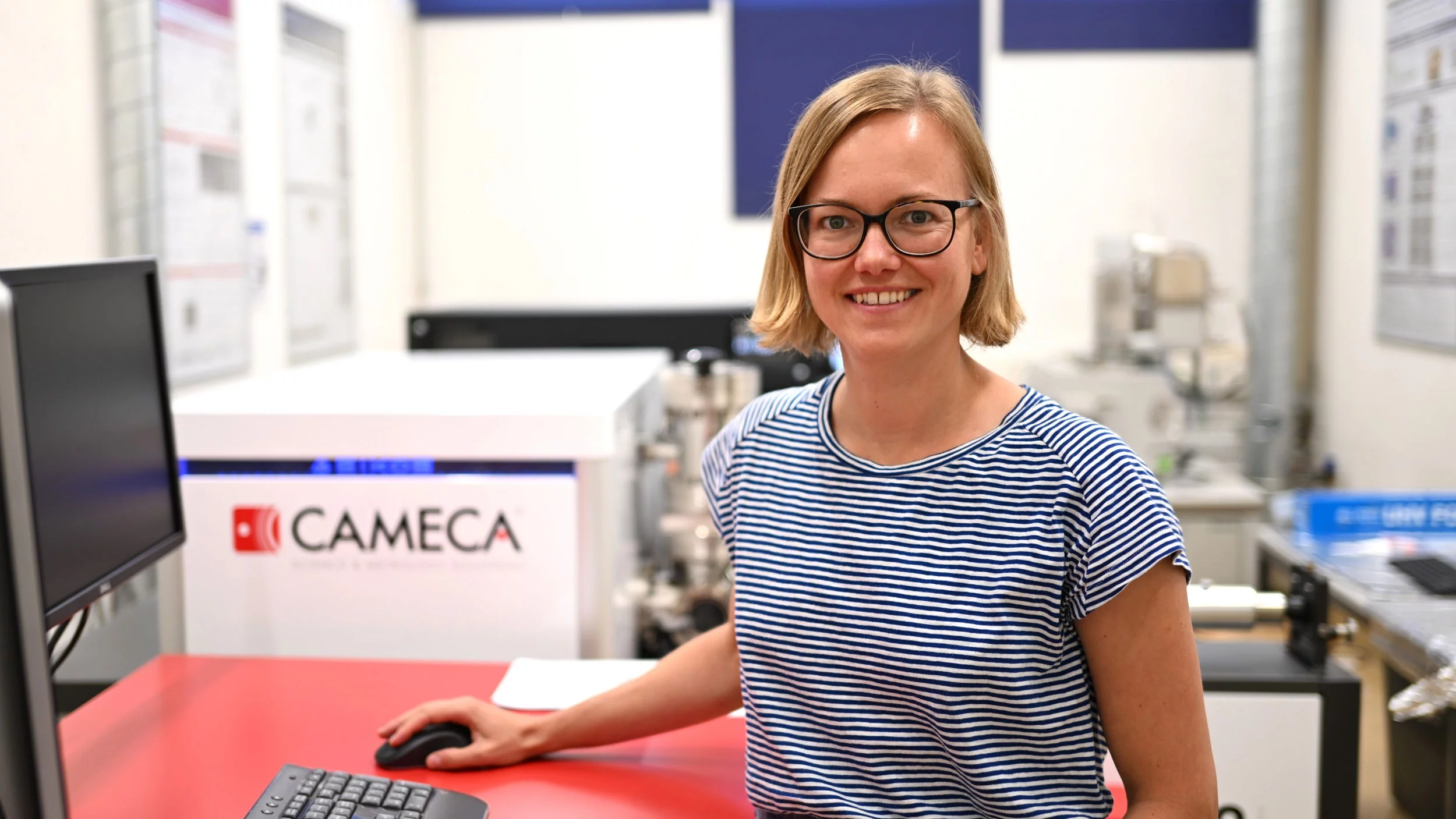
“I had a talent for and enjoyed STEM subjects throughout school which led me to study and obtain a PhD in materials science. Admitting that I did not have any prior knowledge or even a clear idea about the subject when enrolling, I quickly became fascinated by its breadth and diversity. Today I work as a material scientist in the field of thin films on understanding fundamentally how metals can attach to and de-attach from polymers, which impacts both reliability and recyclability of flexible devices.”
What have you achieved or particularly valued in your career so far and why did you decide to apply for feM-LEAD?
I particularly value and enjoy the multidisciplinary character of my subject and how one specific material can be researched and used for different applications. Metal-polymer composites, the material of my MSc thesis that dominates my research until this day, are equally interesting for the microelectronics industry and space exploration. This leads me to collaborate with global players in the microelectronics industry, the European Space Agency, and international academics alike.
My scientific excellence has allowed me to build my own small research group (most notably ERC Starting Grant 2024) and supervise students on functional and sustainable material solutions for diverse applications. I perceive this as a very enjoyable and rewarding task – challenging at times – and consider educating myself further in leadership topics as a personal priority at this stage of my career. The feM-LEAD programme offered a valuable opportunity to help me become the modern, fair, and inclusive leader I envisage myself to be.
What ambition, vision, motivation or new insight do you leave the feM-LEAD programme with?
Through the programme, I was able to expand my network of established and future female leaders with whom to share experiences and discuss career planning strategies, beyond the 1-year mentoring period. I also further developed the skills needed to create a respectful and nourishing work environment for my future research group that allows students to thrive and become successful independent researchers themselves.
Mashael Yazdanie, Group Leader, Urban Energy Systems Laboratory, Empa
“Motivated by the climate crisis and our urgent need to transform global energy systems, I’ve dedicated my career to advancing the sustainable energy transition. With a background in systems design engineering and a doctorate focused on decentralised renewable energy technologies and transition pathways, my past work has spanned solar, ocean, wind, and biogas energy, electric mobility, and urban energy systems planning. I now lead the Macro-Energy Systems Group at the Urban Energy Systems Laboratory at Empa, where my research focuses on holistic, transdisciplinary approaches to building resilient, equitable, and sustainable societies.”
What have you achieved or particularly valued in your career so far and why did you decide to apply for feM-LEAD?
Throughout my career, I’ve had the privilege of working on innovative energy projects across a wide range of energy technologies and system scales. What I’ve enjoyed most is collaborating with diverse, multidisciplinary teams to co-create solutions that address both environmental and societal challenges. Leading international research partnerships, particularly in the Global South, has been especially rewarding and deepened my commitment to inclusive, systems-based approaches.
I applied to feM-LEAD to hone my leadership skills, strengthen my voice in shaping inclusive energy transitions, and connect with a community of women who are driving change in their fields. The programme’s focus on mentorship and structural equity aligns deeply with both my professional goals and personal values.
What ambition, vision, motivation or new insight do you leave the feM-LEAD programme with?
I’ve gained insights that have deepened my understanding of how essential diversity, equity, and inclusion are to effective leadership and thriving workplaces. This experience has renewed my commitment to fostering inclusive, systems-level change and strengthened my dedication to advancing equitable energy transitions. Now more than ever, I am convinced that we can only successfully tackle global challenges like climate change through multidisciplinary collaboration and diverse, inclusive leadership at every level.
Eawag-Mentees
Silvana Kaeser, Environmental Scientist, Eawag
“My motivation for choosing my career has been to actively promote the sustainable and ecological management of natural habitats in order to enhance biodiversity. It was this passion that led me to become an environmental scientist and take on my current role as a research technician in the Aquatic Ecology Department at Eawag.”
What have you achieved or particularly valued in your career so far and why did you decide to apply for feM-LEAD?
After my studies, I have enjoyed working in development cooperation projects focused on ecotourism and biodiversity in the tropical rainforests of Peru. At ETH, I gained valuable experiences in leadership tasks by conducting practical courses in aquatic ecology and co-supervising bachelor's students. Since 2016, I have been responsible at Eawag for the long-term monitoring of plankton in lake Greifensee and for managing the Eco Microscopy Laboratory — where my enthusiasm for algae began.
My involvement in training biology apprentices, supervising students, and teaching taxonomic courses has reinforced my strong interest in expanding my leadership responsibilities, which is why I applied for feM-LEAD. Participation in the feM-LEAD programme represents a meaningful step toward my desired career goal.
What ambition, vision, motivation or new insight do you leave the feM-LEAD programme with?
The feM-LEAD programme has enhanced my leadership skills and deepened my understanding of how to lead with clarity and effective communication. Through the one-to-one mentoring, I gained personal and unique insights into my mentor’s professional experience, and I had the opportunity to openly discuss challenges. This experience has made me realise that I would like to complement my specialist role with leadership responsibilities, and I am excited about taking the next steps in this direction.
Alexandra Kroll, Tenured Scientist in Environmental Risk Assessment, Eawag
“Driven by curiosity for biological processes and a deep commitment to conserving an intact environment, I currently work as an expert in environmental risk assessment at the Swiss Centre for Applied Ecotoxicology. With a background in biology and environmental sciences, I combine applied research with consultancy and education to support our stakeholders. My work is guided by a passion for lifelong learning and the desire to contribute meaningfully to society.”
What have you achieved or particularly valued in your career so far and why did you decide to apply for feM-LEAD?
I’ve led an SNSF-funded research team, contributed to policy-relevant environmental risk assessments, applied my expertise both in academia and the private sector, and initiated and headed a workers’ council. My journey has been shaped not only by scientific achievements but also by personal growth — including raising three children as a single mother while pursuing a career in science. I take pride in maintaining high professional standards and adapting my skills to different contexts.
I applied for feM-LEAD to reflect on my leadership path and assess whether I’m ready to take on personnel responsibilities again. The programme provided a timely space for self-reflection.
What ambition, vision, motivation or new insight do you leave the feM-LEAD programme with?
feM-LEAD strengthened my confidence in my leadership skills and equipped me with valuable tools for self-awareness and leadership development. I am leaving the programme with a stronger sense of purpose, additions to my professional network, clarity about the value I bring to my role, and the motivation to take on new responsibilities.
Marta Reyes, Freshwater Ecologist / Research Technician, Eawag
“With the commitment to making a positive impact, I studied Environmental Sciences and hold a master’s in biology and a DAS in species and biodiversity. Fascinated by the complexity of freshwater ecosystems, I focus on exploring the microscopic aquatic world – especially phytoplankton diversity – because in water, we never swim alone.”
What have you achieved or particularly valued in your career so far and why did you decide to apply for feM-LEAD?
Biodiversity is at the heart of everything I do. Whether in Swiss waters, in a remote Greenlandic lake, or oceanic water of the Azores, I have seen every field expedition as a chance to witness this richness firsthand and contribute to its preservation. Yet after 15 years at Eawag, I am at a pivotal point in my career where I wanted to explore opportunities for professional growth and development. I took part in feM-LEAD to reflect and learn how I would like to move from an actual hands-on role to a position with more leadership responsibilities.
What ambition, vision, motivation or new insight do you leave the feM-LEAD programme with?
This mentoring programme has represented an invaluable opportunity for me to gain insights, guidance, and mentorship from experienced colleagues. As a full-time employee and full-time mum, I appreciated expanding my skills and advancing my career. It was both inspiring and confidence-boosting to meet an amazing set of women leaders in their field and share enriching experiences as well as every advice I got from my mentor.
I leave the programme with the ambition to contribute more effectively to future projects, take on greater leadership responsibilities, and continue enjoying my work as I have so far. I believe that passion for one's work is essential.
I appreciate Eawag’s support through programmes like feM-LEAD and look forward to shaping my career with greater purpose and responsibility.
WSL-Mentees
Irene Cordero, Researcher, WSL
“As a child, I was always fascinated by nature and very curious about how everything is connected in ecosystems. This passion led me to study biology and do a PhD in ecology. Currently, I lead a research line on the effects of global change on soil biodiversity and functioning.”
What have you achieved or particularly valued in your career so far and why did you decide to apply for feM-LEAD?
My scientific career focuses on soils, their biodiversity and functioning, under the threat of global change. I really enjoy the scientific process of creativity and curiosity-driven research, and the possibility to work on something that I am very passionate about. I also love the possibility to do research that can have a real impact on people’s lives.
I applied for feM-LEAD because I wanted to become a good leader. My ambition is to lead a strong research group studying how to mitigate global change and support biodiversity.
What ambition, vision, motivation or new insight do you leave the feM-LEAD programme with?
After completing the feM-LEAD programme, I am committed to becoming the best leader I can be, leveraging the new skills that I've acquired. Inspired by this journey, I aim to encourage others to pursue a scientific career with the same passion that drives me. I have learnt that mentorship and peer help are extremely useful, which motivates me to also use it in the future; I now have a strong and supportive network.
Anne Kempel, Biologist, WSL
“I have always been fascinated by biodiversity and the ecological mechanisms that maintain it. That’s why I studied biology and the interactions between different kinds of species. My journey in academia has led me to a researcher position within the Mountain Ecosystem Group at the SLF in Davos, where I investigate how global change affects biodiversity and the functioning of our ecosystems.”
What have you achieved or particularly valued in your career so far and why did you decide to apply for feM-LEAD?
I love interacting with students and researchers and believe that answering questions together is a powerful and enjoyable approach to science. Together with a colleague, I therefore founded a global collaborative research network – the Bug-Network – which investigates the role of biotic interactions in ecosystems and the impacts of global change on biodiversity.
Through this and other experiences, I’ve come to see that taking on a leadership role could be an exciting path to make a more meaningful contribution to biodiversity conservation— beyond managing my own work individually. I also recognise that there is much to learn to guide teams and about fostering inclusive, supportive, and motivating environments. I applied to feM-LEAD to explore whether leadership roles align with my personality and long-term goals, and to develop the skills needed to lead with confidence and integrity.
What ambition, vision, motivation or new insight do you leave the feM-LEAD programme with?
Through the feM-LEAD programme, I’ve gained a clearer vision of the kind of leader I want to be—someone who motivates others, brings excitement to the team, and fosters a collaborative and inclusive research environment. I am leaving the programme with confidence in my ability to take on leadership roles. Most importantly, I’ve come to understand that leadership is not a fixed trait, but a skill that can be developed and shaped to align with one’s values and personal style.
Isabella Schalko, Hydraulic Engineer / Research Scientist (tenure-track), WSL
“I have always been drawn to how water shapes our environment—and how engineering can help us manage its dynamics in sustainable ways. With a background in environmental engineering, I now lead research on sediment and wood transport processes in fluvial systems, combining laboratory experiments and fieldwork to improve risk management and river restoration efforts. I also share my passion for these topics as a lecturer at ETH Zurich.”
What have you achieved or particularly valued in your career so far and why did you decide to apply for feM-LEAD?
I’ve had the privilege of working at world-leading research institutions, including ETH Zurich, MIT, and now WSL, and of building a growing research portfolio through my SNSF Ambizione fellowship. I currently supervise PhD students and coordinate interdisciplinary projects at the interface of engineering and ecology. What I enjoy most is the mix of conceptual thinking and hands-on experimentation, as well as mentoring early-career researchers.
As I consider the next steps toward larger leadership responsibilities, I applied to feM-LEAD to reflect on how I want to grow in this role – particularly how to lead in a supportive and inclusive way while remaining scientifically active.
What ambition, vision, motivation or new insight do you leave the feM-LEAD programme with?
feM-LEAD helped me to clarify how I want to lead: with integrity, encouragement, and strategic focus. I’ve gained valuable insights into balancing leadership and research, and feel better equipped to contribute to shaping collaborative, future-oriented research environments.
Marion Sommer, Finance Specialist, WSL
"I have always been fascinated by numbers. After completing my commercial apprenticeship, I developed not only knowledge but also a genuine passion for accounting. Today, I work at WSL as a project coordinator for SAP S/4HANA and actively help shape financial processes – with precision, commitment and a great deal of enjoyment."
What have you achieved or particularly appreciated in your career so far – and why did you apply for feM-LEAD?
Working internationally and leading teams has had a strong influence on me, both professionally and personally. After years abroad, I successfully implemented processes in Switzerland and supported reorganisation and change management projects at management level. At WSL, I deliberately stepped back from leadership responsibilities to devote myself to further training and a family project. At the same time, I felt a growing desire to further develop my leadership skills. This is exactly where the feM Lead programme appealed to me: the practical support of an experienced mentor, the assessment of my current position and the accompanying events enable me to reflect on and further develop my leadership skills in a targeted manner.
What ambition, vision, motivation or new insights are you taking away from the feM Lead programme?
The feM Lead programme has confirmed my commitment to leadership. I have learned to combine clear communication, structured organisation and forward thinking in order to shape change in an agile, strategic and solution-oriented manner. At the same time, it has sharpened my vision: to live leadership actively, effectively and with a focus on the future.
